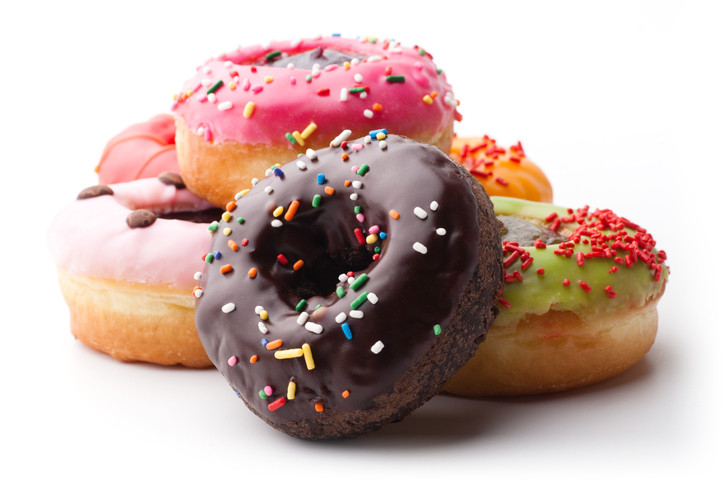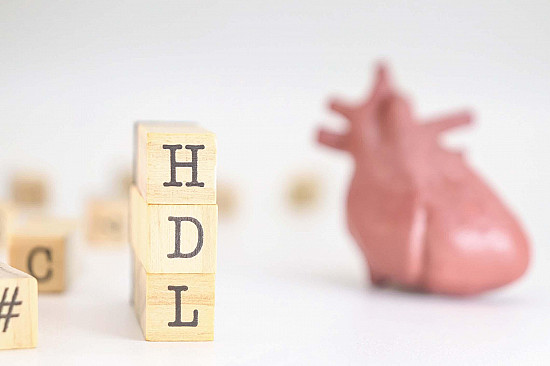
New thinking about plaque in arteries that feed the brain

Want to prevent shifting teeth? Maybe you need retainers

New evidence that polyphenol-rich foods help the heart

What you need to know about the new dietary guidelines

Food that’s healthier for people and planet can be cheaper, too

What are somatic workouts?

How to curb your stress eating

8 simple ways to reduce ultra-processed foods in your diet

How to spot Parkinson’s disease symptoms

Heart failure symptoms in women: How they’re different
4 foods not to eat if you have high cholesterol
These foods are notorious for raising levels of LDL cholesterol.

If you are like most adults in the United States, your blood cholesterol level is higher than it should be. Health experts continue to lower the optimal cholesterol numbers to prevent a heart attack or stroke. Whether or not you already take cholesterol-lowering medication, making some simple dietary changes can reduce your risk of cardiovascular disease even more.
What foods lower cholesterol?
Certain foods help to keep your cholesterol levels in check. These foods lower cholesterol in various ways:
- oats
- barley and other whole grains
- eggplant and okra
- nuts
- vegetable oils
- apple, grapes, strawberries
- foods fortified with sterols and stanols
- soy
- fatty fish
- fiber supplements.
Keep in mind that not all high cholesterol foods are bad for you. For example, eggs are relatively high in cholesterol. But they don't raise cholesterol levels as much as saturated fats. And they're also packed with protein and other nutrients.
What foods cause high cholesterol?
It's the foods that are high in saturated fat that you need to worry about, because they can raise your cholesterol levels AND make you gain weight.
What are the worst foods for high cholesterol? Red meat, fried foods, and baked goods are notorious for raising levels of low-density lipoprotein (LDL) cholesterol, the sticky kind that builds up in artery walls.
Here are 4 foods you'll want to avoid if you have high cholesterol:
1. Red meat. Beef, pork, and lamb are generally high in saturated fat. Cut of meat like hamburger, ribs, pork chops, and roasts are highest in fat. You don't have to avoid meat entirely, just eat it only on occasion. Limit yourself to the recommended 3-ounce portion size and stick to leaner cuts like sirloin, pork loin, or filet mignon.
Better yet, replace meat with proteins that are lower in saturated fat and cholesterol, like skinless chicken or turkey breast, fish, and beans.
2. Fried foods. Foods that have taken a dip in the deep fryer, like chicken wings, mozzarella sticks, and onion rings are among the worst when it comes to cholesterol. Frying increases the energy density, or calorie count of foods.
If you love the crunch of fried food, use an air fryer and toss your food in a little bit of olive oil. Or bake foods like potato wedges and chicken at a high temperature until they're golden brown.
3. Processed meats. Hot dogs, sausage, and bacon use the fattiest cuts of red meat, and therefore tend to be high in cholesterol and saturated fat. Bacon and sausage made with turkey or chicken might seem healthier, and they are somewhat lower in cholesterol than the red meat versions, but they're not cholesterol-free.
4. Baked goods. Cookies, cakes, and pastry are often made with large quantities of butter and shortening, making them high in cholesterol. You don't have to give up dessert entirely, just make a few substitutions. When you bake, use applesauce or bananas in place of butter. Or have low-fat frozen yogurt topped with berries for dessert.
Image: sergeyskleznev/Getty Images
Disclaimer:
As a service to our readers, Harvard Health Publishing provides access to our library of archived content. Please note the date of last review or update on all articles.
No content on this site, regardless of date, should ever be used as a substitute for direct medical advice from your doctor or other qualified clinician.

New thinking about plaque in arteries that feed the brain

Want to prevent shifting teeth? Maybe you need retainers

New evidence that polyphenol-rich foods help the heart

What you need to know about the new dietary guidelines

Food that’s healthier for people and planet can be cheaper, too

What are somatic workouts?

How to curb your stress eating

8 simple ways to reduce ultra-processed foods in your diet

How to spot Parkinson’s disease symptoms

Heart failure symptoms in women: How they’re different
You might also be interested in…

Managing Your Cholesterol: Lifestyle habits and medications to lower your risk of heart disease
Managing Your Cholesterol offers up-to-date information to help you or a loved on keep cholesterol in check. This Special Health Report covers cholesterol tests, the genetics of cholesterol, treatments based on the latest scientific evidence, and the pros and cons of statins and other medications. Managing Your Cholesterol can also help you work with your doctor to individualize your treatment.
Free Healthbeat Signup
Get the latest in health news delivered to your inbox!
Sign Up




